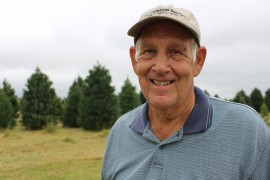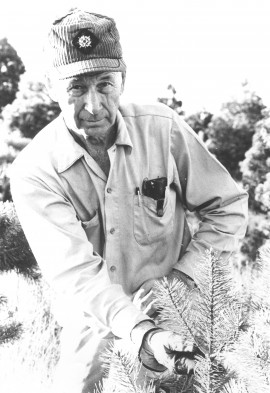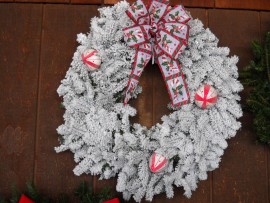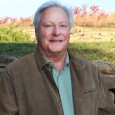By John Schlageck on November 10, 2016
The Delp Christmas Tree Farm is a family affair
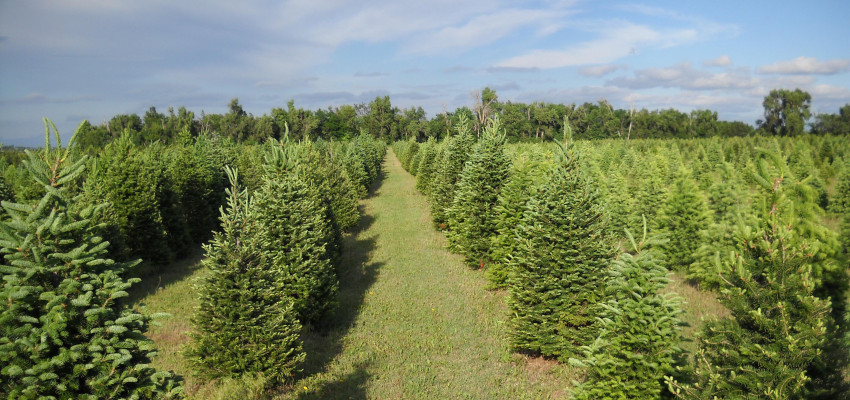
Harken back to those days of yesteryear when growing up in the Kansas countryside meant you didn’t buy a Christmas tree. Most rural families walked into the woods or down by the creek and cut down a choice little cedar or pine, hauling it home in a wagon or the back of a pickup.
That was part of the fun of being a kid back then — picking out the tree you wanted weeks ahead of time and decorating it in anticipation of Christmas.
The same holds true today at the Delp Christmas Tree Farm located on the east side of St. John in Stafford County. Here, youngsters and their parents can’t wait to dash into the 20-acre farm looking for that special Christmas tree with their name on it.
Families from south-central Kansas and beyond have journeyed to St. John for six decades to select the fir or pine of their choice. Four generations of Delp family members have provided these homegrown trees.
The Delp Christmas Tree Farm holds the distinction of being the oldest continuously operating commercial tree farm in Kansas. Cecil and Ruby Delp started this enterprise in 1959. Cecil observed how pine trees grew in shelterbelts throughout Stafford County and helped slow down wind erosion. Meanwhile, his cousins in Michigan and Pennsylvania were growing approximately 50,000 trees and harvesting them for Christmas.
This inspired Cecil. He started by planting 17,500 trees that first year and another 17,500 the next. Son Tony Delp says another reason his father decided to grow Christmas trees was a ready supply of family labor — something this business requires plenty of.
“The fun part of this venture for my brother and me was having the pleasure of hoeing around all those trees,” Tony says, his face breaking into a huge smile. “Dad called this weed control. We thought of it as child control.”
Classmates and neighbor kids also helped with seasonal labor including trimming, mowing and planting trees. Ruby and Cecil taught school, farmed and worked the Christmas tree business, starting a family tradition. They also founded the Kansas Christmas Tree Growers Association.
After leaving the farm to attend college and pursue an engineering career in Dallas, Tony returned to Stafford County in 1976 and took over management for them. Christmas tree farms continued to grow during the ’70s, ’80s and early ’90s. During this peak period, more than 150 such businesses operated in Kansas. Today, 34 exist.
One of the most difficult aspects of the Christmas tree business for some growers remains the time it takes to plant, cultivate and harvest a mature crop — usually about six to 10 years. “It takes patience and plenty of it,” Tony says. “My dad was blessed with that virtue — and the vision to succeed.”
The Delp farm grew steadily under Tony’s tutelage. In the mid-’90s, the family business raised approximately 350,000 pines and firs on 200 acres. During this period, the Delp operation sold wholesale to other growers and tree farms throughout Kansas, Oklahoma, Colorado,Nebraska, Missouri and Arkansas. The retail business boomed as well. To this day, cars full of families bent on cutting their own trees line up out of the driveway more than a mile to the north and south.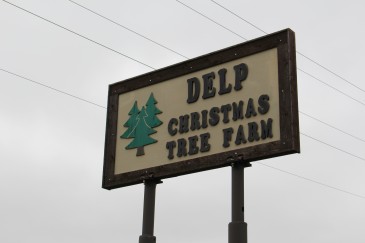
Today, Tony’s son, Joel, and his wife, Sarah, manage the business with the help of their two sons, Elijah and Emmett. Four-year-old daughter Cecilia may one day help as well. Approximately 75 percent of the business revolves around retail sales, while wholesale results in the other 25 percent. The elder Delp has watched the Christmas tree market change during his 60 years in the business. He’s seen pre-lighted, artificial trees come and go. He’s seen more sales of Christmas trees by local grocery stores and service organizations in communities across the state.
During the last few years, more and more customers look for colored trees, known as flock trees, Tony says. Some of the most popular colors are blue, purple and, of course, green is always in demand. “Flock trees look like a light snow has fallen on them,” Tony explains. “The color of the snow is strictly personal choice.”
Many people still prefer the traditional Douglas fir, eastern white pine and southwestern white pine, he says. That’s why Delp Christmas Tree Farm has planted Canaan fir, Korean fir and Turkish fir that grow well in Kansas. These trees tend to sport softer needles that tree buyers value as well.
In addition to the newer tree varieties, the Delps also offer the sights, smells and sound of Christmas. Walk onto the Delp Christmas Tree Farm and the sound of carols wafts out of the tree building. The inside is decorated with wreaths, garland, ornaments and a roaring fire. Whole peanuts, candy canes and hot apple cider await as well.
The day after Thanksgiving, Delp Christmas Tree Farm opens its doors for the holidays. During this peak selling season, hours run from 1 p.m. until 6 p.m. Monday through Friday. Saturday hours are 9 a.m. to 6 p.m., and Sunday from 1 p.m. to 6 p.m.
Between 850–900 people drop by to cut their own tree during the winter holiday, many from 50 to 60 miles away. Cost is determined by height and tree variety. Most people want a tree that’s seven to seven and one half feet tall.
“A few years ago, it used to be approximately six feet,” Tony says. “The price ranges from around $38 and up. There’s not much that beats the smell of a fresh-cut tree.” And for the Delps, nothing is better than working alongside family and spending time with the folks who visit the tree farm and become part of their Christmas tradition.

